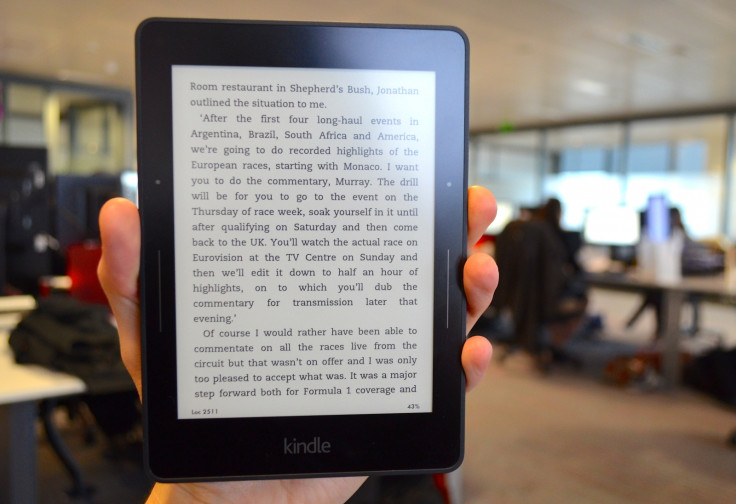Waterstones kills Kindle: Why the ereader flopped and paper is making a comeback

Book retailer Waterstones has decided to stop selling Amazon's Kindle ereaders and replace them with traditional books after "pitiful" sales of the devices. While ebook sales have been gradually increasing they're not a patch on physical sales.
The Kindle, which sought to revolutionise how we read books, was once feared to spell the end of paper versions. But the opposite has happened as a rise of traditional book sales means Waterstones will be replacing e-reader display space with new releases.
The Kindle has been stocked at Waterstones for the past three years but sales in-store have never taken off. In contrast, it was reported that print sales of books have risen by 4.6% in the first 36 weeks of 2015, accounting for almost £739m (€1bn, $1.13bn).
Why Kindle sales have fallen
So why after huge demand for the device when it launched and its ubiquity on public transport and in the hands of holidaymakers is the Kindle facing such a demise? The main reason is the Kindle is a victim of its own success.
Once people buy one they keep it for years, meaning Amazon isn't benefiting from the cyclical surge of sales seen by the likes of Apple who update their smartphones and tablets every year. There have been newer iterations of the Kindle improving display contrast and introducing a backlight, but consumers seem content with the adequate older technology. It's not just Kindle that's suffering as rival ereader Nook from Barnes & Noble is reporting fewer devices being sold as a result of fewer first time buyers.

The second reason why the Kindle may have flopped in Waterstones is the argument that it cannot replace the feel of a real book – something ereader naysayers have always espoused – leading to people increasingly choosing to buy hardbacks and paperbacks. The fact the Kindle is being sold in a book shop probably doesn't help either as a the majority of customers visiting the store are more likely to go there to browse new covers, flick through books, and enjoy the sensory experience rather than buying a device that is seen to detract from that.
James Daunt, managing director of Waterstones, has said stores will be taking back the display space once dedicated to the Kindle in branches across the country.
Amazon UK has been quoted as saying: "We are pleased with the positive momentum and growing distribution of Kindle and Fire tablet sales – our devices are now available in over 2,500 retail locations across the UK, including Argos, Tesco, Dixons, John Lewis and recent additions like Sainsbury's, Boots and Shop Direct. Our UK, US and worldwide Kindle book sales are growing in 2015."
The Kindle remains one of the best ereaders available and the whole ereader category still offers a fantastic option for reading books when commuting or travelling. Traditionalists might see this as a victory but we doubt we'll see the whole category disappear – only from Waterstones. If you want to get a Kindle you better look online instead.
© Copyright IBTimes 2025. All rights reserved.






















